
Vibrant Campus Life at the University of Arizona, Tucson
Situated in the heart of Tucson, the University of Arizona offers a unique blend of academic vibrancy and cultural richness. The campus itself is an architectural marvel, seamlessly blending historic buildings with modern facilities. Visitors can take a leisurely stroll through the manicured lawns, explore the university's museums, or simply soak in the youthful energy that permeates the area. The University of Arizona is home to the renowned Arizona State Museum, which showcases the region's Native American history and culture. The Flandrau Science Center & Planetarium is another must-visit, offering interactive exhibits and dazzling star shows that captivate both young and old. Art enthusiasts will appreciate the University of Arizona Museum of Art, which houses an impressive collection of works spanning various periods and styles. The surrounding neighborhood is equally inviting, with numerous cafes, restaurants, and shops catering to a diverse crowd. Whether you're looking to enjoy a casual meal, sip on locally brewed coffee, or shop for unique souvenirs, you'll find plenty of options just a short walk from the campus. The area also boasts a lively nightlife, with plenty of bars and live music venues to explore. For those who love the outdoors, the university's location offers easy access to Tucson's natural beauty. The nearby Catalina Mountains provide a stunning backdrop for hiking, biking, and other outdoor activities. Additionally, the campus is just a stone's throw away from the vibrant downtown area, making it an ideal starting point for exploring all that Tucson has to offer.
Local tips in University of Arizona
- Visit the Arizona State Museum for a deep dive into Native American culture and history.
- Check the schedule at Flandrau Science Center & Planetarium for star shows and interactive exhibits.
- Explore the University of Arizona Museum of Art for a diverse collection of artworks.
- Take a walk through the campus to appreciate its blend of historic and modern architecture.
- Visit nearby cafes and restaurants for a taste of local cuisine and culture.
- Plan a hike in the Catalina Mountains for breathtaking views and outdoor adventure.
- Explore the lively nightlife with bars and live music venues in the surrounding area.
Vibrant Campus Life at the University of Arizona, Tucson
Situated in the heart of Tucson, the University of Arizona offers a unique blend of academic vibrancy and cultural richness. The campus itself is an architectural marvel, seamlessly blending historic buildings with modern facilities. Visitors can take a leisurely stroll through the manicured lawns, explore the university's museums, or simply soak in the youthful energy that permeates the area. The University of Arizona is home to the renowned Arizona State Museum, which showcases the region's Native American history and culture. The Flandrau Science Center & Planetarium is another must-visit, offering interactive exhibits and dazzling star shows that captivate both young and old. Art enthusiasts will appreciate the University of Arizona Museum of Art, which houses an impressive collection of works spanning various periods and styles. The surrounding neighborhood is equally inviting, with numerous cafes, restaurants, and shops catering to a diverse crowd. Whether you're looking to enjoy a casual meal, sip on locally brewed coffee, or shop for unique souvenirs, you'll find plenty of options just a short walk from the campus. The area also boasts a lively nightlife, with plenty of bars and live music venues to explore. For those who love the outdoors, the university's location offers easy access to Tucson's natural beauty. The nearby Catalina Mountains provide a stunning backdrop for hiking, biking, and other outdoor activities. Additionally, the campus is just a stone's throw away from the vibrant downtown area, making it an ideal starting point for exploring all that Tucson has to offer.
Iconic landmarks you can’t miss
Arizona State Museum
Explore 13,000 years of Southwestern history and culture at the Arizona State Museum. Discover ancient artifacts and enduring Native traditions.
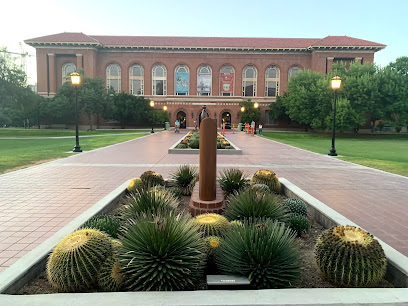
Center for Creative Photography
Explore a world-class collection of photographic art at the University of Arizona's Center for Creative Photography in Tucson.
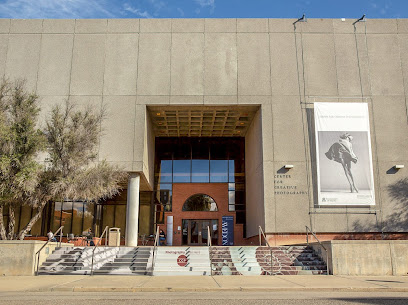
Presidio San Agustín del Tucson Museum
Discover Tucson's rich history at the Presidio San Agustín del Tucson Museum, a living reconstruction of the original 1775 Spanish fort.
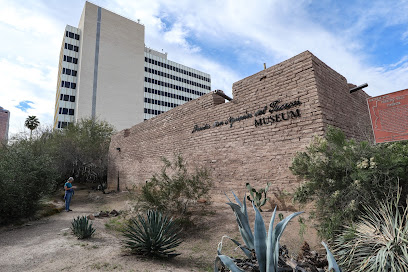
The University of Arizona Alfie Norville Gem & Mineral Museum
Discover Earth's hidden treasures at Tucson's Alfie Norville Gem & Mineral Museum, a world-class collection for all ages.
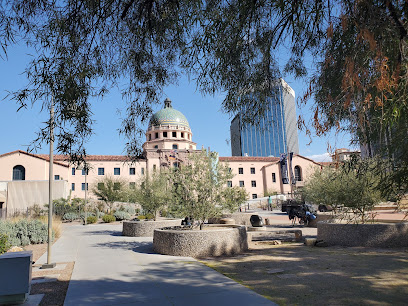
University of Arizona Museum of Art
Explore eight centuries of art at the University of Arizona Museum of Art, featuring European & American masterpieces in the heart of Tucson's cultural district.
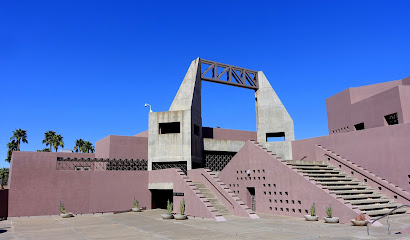
Flandrau Science Center and Planetarium
Explore the universe at Flandrau Science Center and Planetarium, a premier destination in Tucson offering stunning shows and interactive exhibits for all ages.
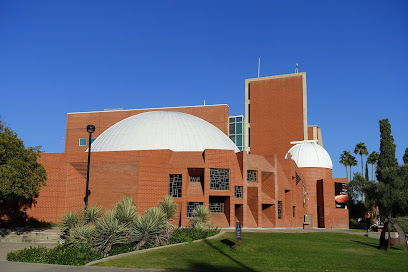
Steward Observatory (University of Arizona)
Explore the cosmos at Steward Observatory, a premier destination for astronomy enthusiasts and curious minds alike at the University of Arizona.
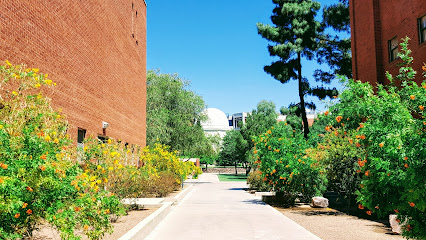
Arizona History Museum
Discover Arizona's vibrant past through captivating exhibits and historical artifacts at the Arizona History Museum in Tucson.
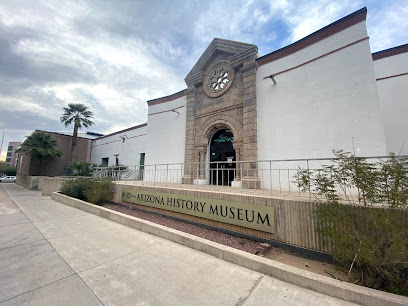
Sosa-Carrillo-Frémont House
Step back in time at the Sosa-Carrillo-Frémont House, a preserved adobe showcasing Tucson's 19th-century history and culture in the heart of downtown.
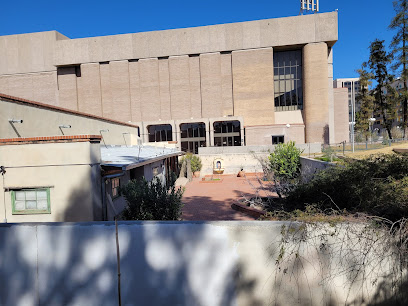
Exchange at the Presidio - The Mormon Battalion Enters Tucson
A monument commemorating the Mormon Battalion's peaceful entry into Tucson and their interaction with the local community in 1846.
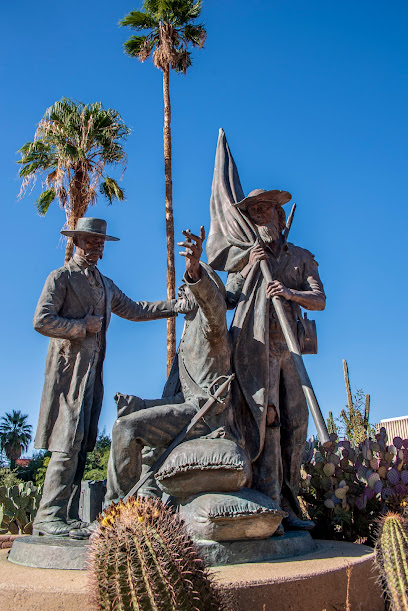
Unmissable attractions to see
Arizona State Museum
Discover the cultural tapestry of the Southwest at the Arizona State Museum, showcasing Native American heritage and artistry.
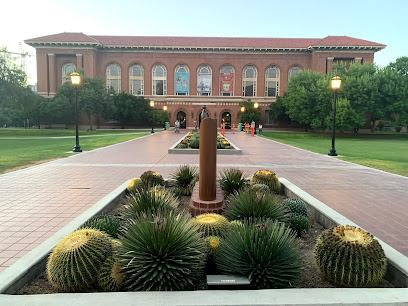
Valley of the Moon
Experience the whimsical charm of Tucson's Valley of the Moon, where art, nature, and community come together in a magical setting.
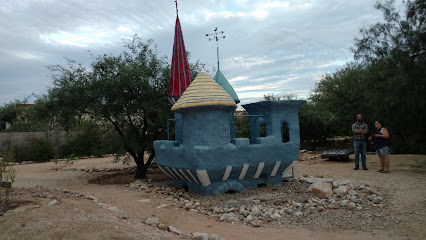
The University of Arizona Alfie Norville Gem & Mineral Museum
Explore the stunning diversity of gems and minerals at The University of Arizona Alfie Norville Gem & Mineral Museum in Tucson, a must-visit for geology lovers.
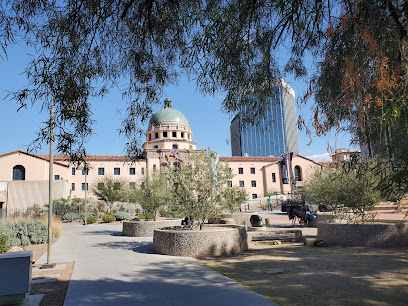
University of Arizona Museum of Art
Explore the University of Arizona Museum of Art: A Cultural Haven Showcasing Diverse Artistic Masterpieces in Tucson.
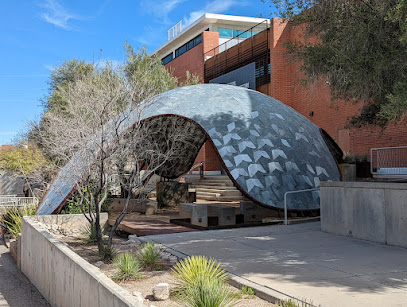
Flandrau Science Center and Planetarium
Explore the universe's wonders at the Flandrau Science Center and Planetarium, a top science museum and planetarium in Tucson, Arizona.
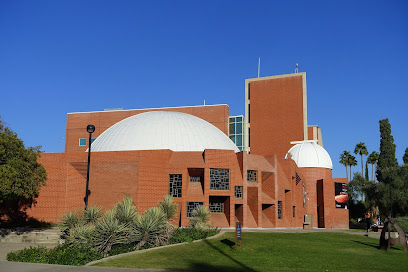
Steward Observatory (University of Arizona)
Explore the cosmos at the Steward Observatory in Tucson, Arizona - a premier destination for astronomy lovers and curious travelers alike.
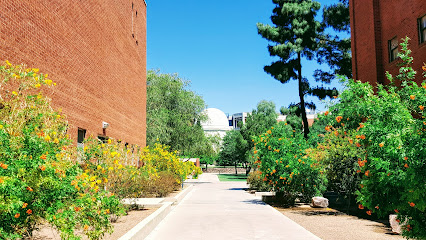
Tucson Audubon Society
Explore Tucson Audubon Society, a premier destination for bird lovers and nature enthusiasts in Arizona, dedicated to conservation and education.
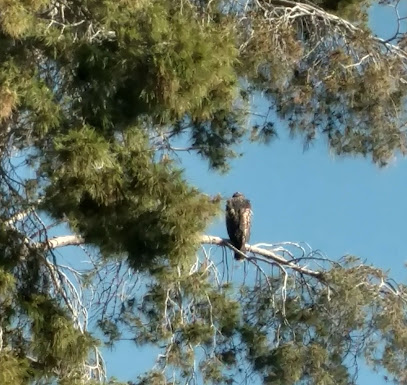
Turtle Pond
Explore Turtle Pond, Tucson's serene oasis for relaxation, wildlife watching, and embracing the natural beauty of the desert landscape.
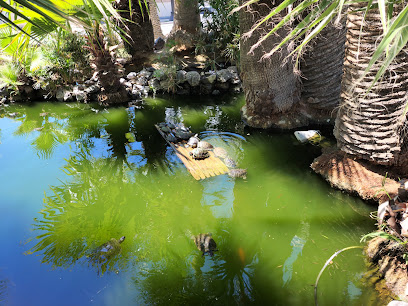
Essential places to dine
Culinary Dropout
Experience the vibrant flavors of American cuisine at Culinary Dropout in Tucson, where great food meets live music in an inviting atmosphere.
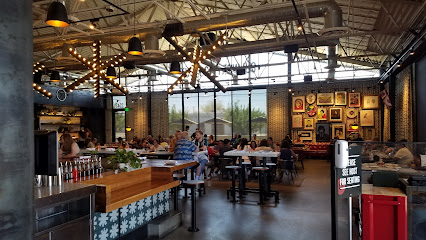
HUB Restaurant & Ice Creamery
Experience flavorful American cuisine and delightful ice cream at HUB Restaurant & Ice Creamery in downtown Tucson.
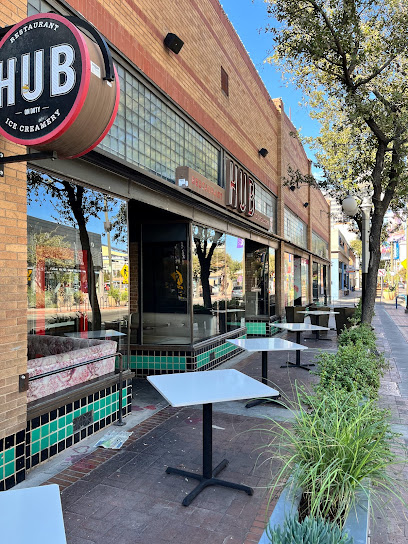
Union Public House
Experience the best of American cuisine at Union Public House in Tucson, where flavor meets community spirit.
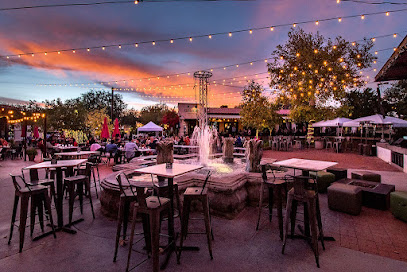
Café à La C'Art
Discover Café à La C'Art: A charming café in Tucson serving delightful American breakfasts and artisan coffee amidst local art.
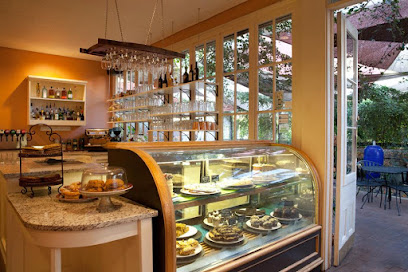
Maynards Kitchen & Bottle Shop
Discover Maynards Kitchen & Bottle Shop in Tucson: Where New American cuisine meets local flavors in a vibrant setting.
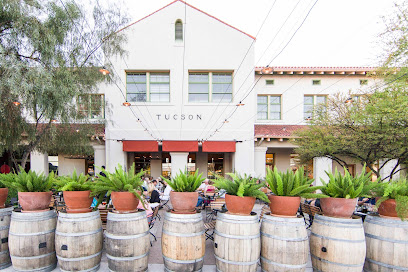
5 Points Market & Restaurant
Experience Tucson's culinary charm at 5 Points Market & Restaurant - A delightful spot for brunch with locally sourced ingredients and refreshing cocktails.
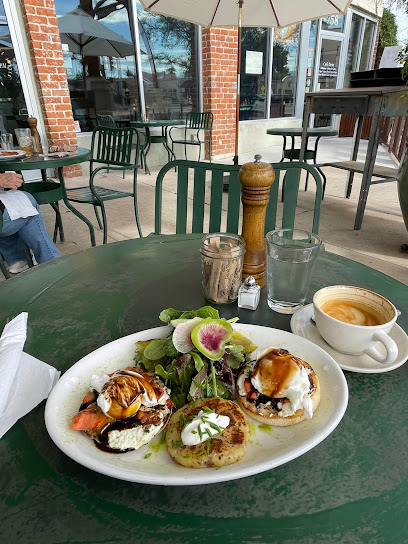
Agustin Kitchen
Discover the flavors of New American cuisine at Agustin Kitchen in Tucson - where local ingredients meet innovative culinary artistry.
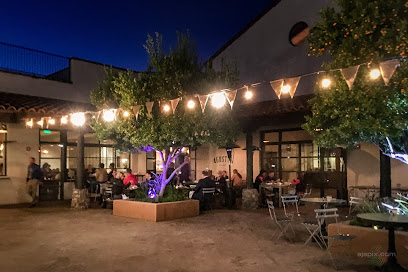
Frog & Firkin
Experience the lively atmosphere at Frog & Firkin, Tucson's favorite grill offering delicious pizzas and refreshing drinks.
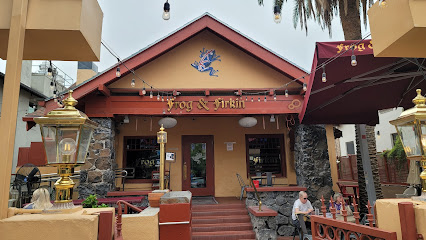
Illegal Pete's - Tucson
Experience Tucson's vibrant food scene at Illegal Pete's - where every bite of our burritos brings a taste of Mexico!
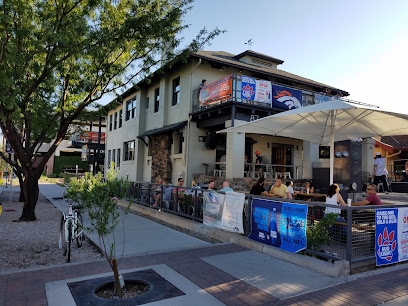
Geronimo Restaurant
Experience a culinary journey at Geronimo Restaurant in Tucson, where international flavors meet local charm for an unforgettable dining experience.
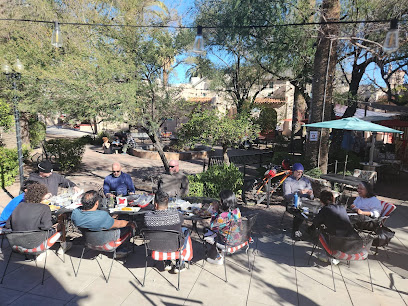
Markets, malls and hidden boutiques
University of Arizona BookStores
Discover the University of Arizona BookStores - your go-to destination for books and apparel that celebrate the spirit of academia.
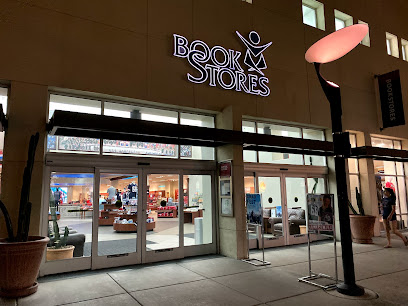
Old Town Artisans | Downtown Tucson Shops
Explore Old Town Artisans, a vibrant gift shop and art gallery in Tucson offering unique handcrafted treasures and a taste of local culture.
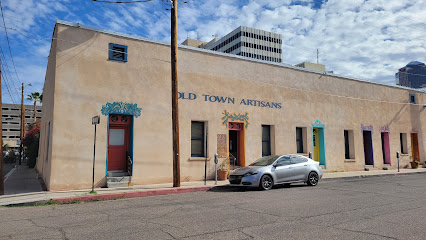
Pop Cycle
Explore Pop Cycle in Tucson for unique, eco-friendly gifts and art pieces that celebrate local artistry and sustainability.
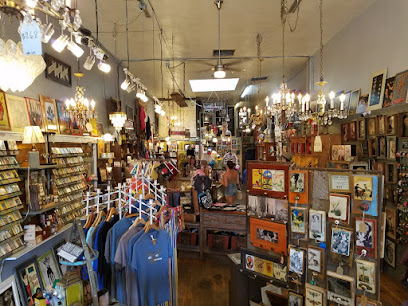
Arizona Poppy
Explore Arizona Poppy for unique, locally crafted gifts that celebrate the vibrant culture and artistry of Tucson, Arizona.
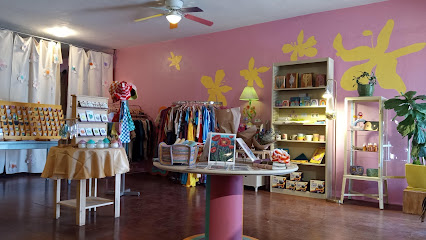
Del Sol Stores
Explore Del Sol Stores in Tucson for unique color-changing products and vibrant home goods that capture the spirit of Arizona.
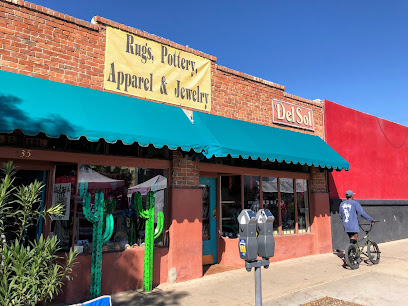
UNA Center
Discover unique and locally crafted gifts at UNA Center in Tucson, the perfect stop for souvenirs that embody the spirit of Arizona.
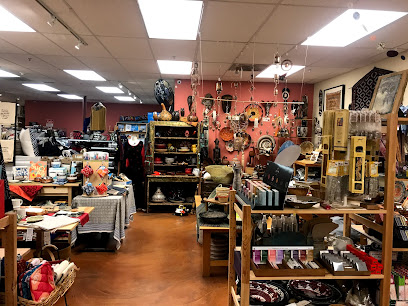
Pink Moon Mercantile
Explore Pink Moon Mercantile, Tucson's premier gift shop for unique artisanal goods and authentic Southwestern souvenirs.
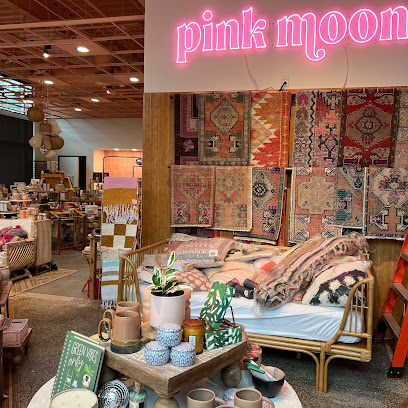
Proper Shops
Explore Proper Shops in Tucson for unique gifts and local art, celebrating the creativity of local artisans in a charming boutique setting.
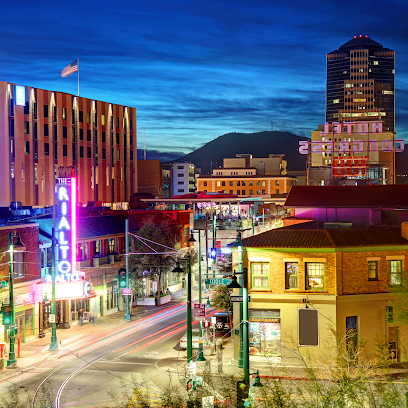
Boutique 816
Explore unique fashion and gifts at Boutique 816 in Tucson's West University, where local culture meets stylish shopping.
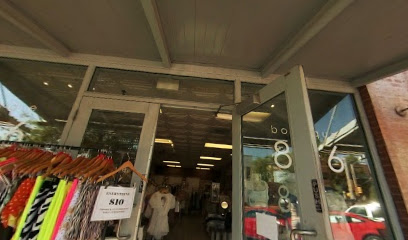
Miller Curio Co
Discover unique gifts and local art at Miller Curio Co, Tucson's delightful gift shop in the heart of the University of Arizona.
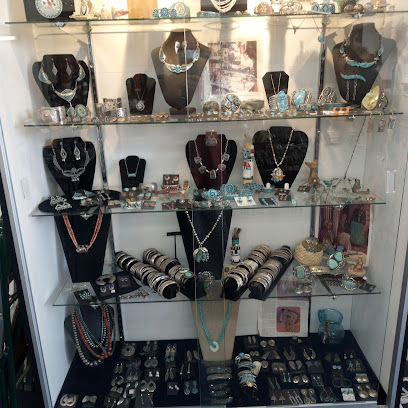
Essential bars & hidden hideouts
Sky Bar Tucson
Discover Sky Bar Tucson, the ultimate rooftop destination for breathtaking views, live music, and delightful drinks in the heart of Arizona.
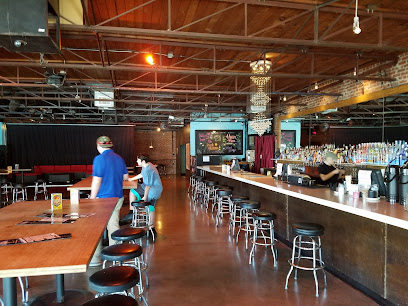
Gentle Ben's Brewing
Experience the vibrant atmosphere and delicious craft brews at Gentle Ben's Brewing, Tucson's go-to destination for food and nightlife.
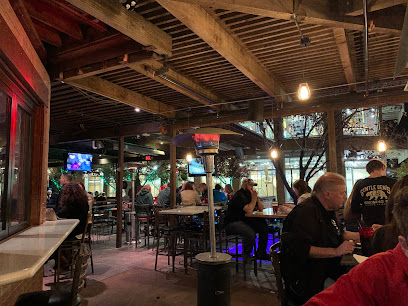
Ermanos Bar
Experience the best of Tucson's gastropub scene at Ermanos Bar with craft beer, delicious food, and a vibrant atmosphere.
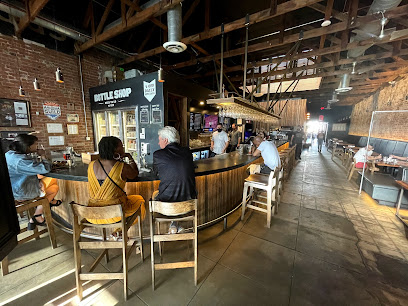
Surly Wench Pub
Discover the lively atmosphere of Surly Wench Pub, a beloved Tucson bar and grill known for its delicious food, craft drinks, and live music.
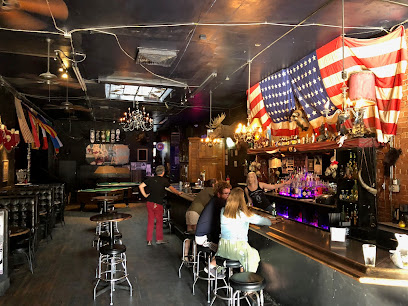
Frog & Firkin
Experience the vibrant atmosphere and delicious food at Frog & Firkin, Tucson's favorite grill and bar for locals and tourists alike.
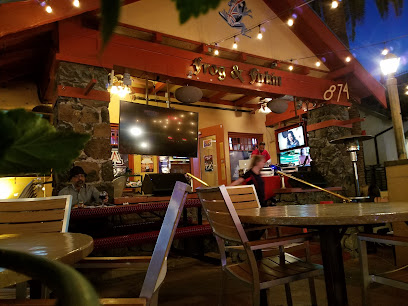
The Funky Monk
Discover the vibrant atmosphere of The Funky Monk in Tucson, offering craft beers, delicious pizza, and a lively ambiance for an unforgettable night out.
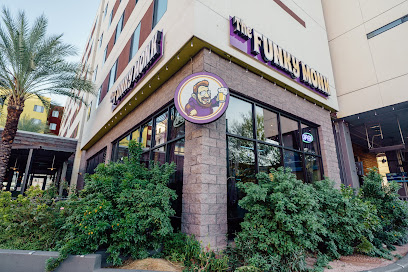
The Royal Room
Discover The Royal Room, a cozy bar in Tucson offering craft beers and unique cocktails, perfect for relaxing after a day of adventure.
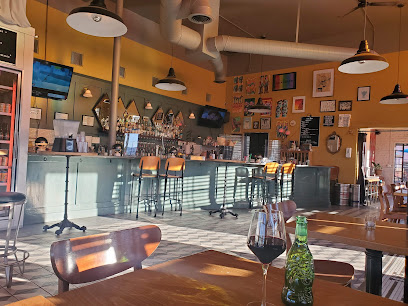
Dirtbag's
Discover the vibrant flavors and casual atmosphere of Dirtbag's, Tucson's must-visit bar and grill near the University of Arizona.
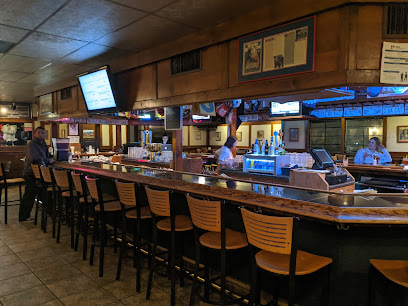
Good Oak Bar
Discover Tucson’s vibrant nightlife at Good Oak Bar, where craft cocktails and local brews await in a cozy atmosphere.
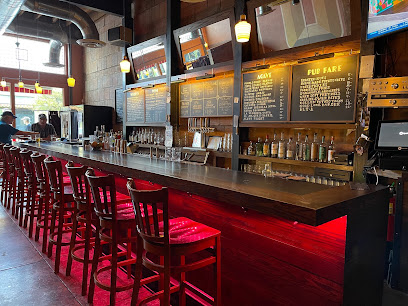
The Moonstone
Discover the vibrant atmosphere and creative cocktails at The Moonstone, Tucson's premier bar and restaurant with stunning views.
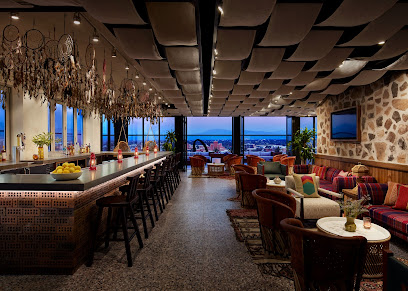
Local Phrases
-
- HelloHowdy
[hah-dee] - GoodbyeSee ya
[see yuh] - YesYep
[yep] - NoNope
[nohp] - Please/You're welcomePlease/You're welcome
[pleez/yor welcome] - Thank youThanks
[thanks] - Excuse me/SorryPardon me/My bad
[par-dn me/my bad] - How are you?How's it going?
[hows it go-in] - Fine. And you?Good. You?
[good. yuh] - Do you speak English?Do you speak English?
[do yuh speak ing-glish] - I don't understandI don't get it
[i dont get it]
- HelloHowdy
-
- I'd like to see the menu, pleaseCan I check out the menu?
[can i chek out the menu] - I don't eat meatI'm vegetarian
[im ve-ji-tear-ee-an] - Cheers!Cheers!
[cheers] - I would like to pay, pleaseI'll pay now, please
[il pay now, please]
- I'd like to see the menu, pleaseCan I check out the menu?
-
- Help!Help!
[help] - Go away!Get lost!
[get lost] - Call the Police!Call the cops!
[call the cops] - Call a doctor!Call a doctor!
[call a doc-tor] - I'm lostI'm lost
[im lost] - I'm illI'm sick
[im sick]
- Help!Help!
-
- I'd like to buy...I'm interested in buying...
[im in-ter-est-ed in buy-in] - I'm just lookingI'm just browsing
[im just brows-ing] - How much is it?What's the price?
[whats the price] - That's too expensiveThat's pricey
[thats prye-see] - Can you lower the price?Can you give me a discount?
[can yuh giv me a dis-count]
- I'd like to buy...I'm interested in buying...
-
- What time is it?What time is it?
[what time is it] - It's one o'clockIt's one
[its one] - Half past (10)Ten thirty
[ten thur-tee] - MorningMorning
[mor-ning] - AfternoonAfternoon
[after-noon] - EveningEvening
[eve-ning] - YesterdayYesterday
[yes-ter-day] - TodayToday
[to-day] - TomorrowTomorrow
[to-mor-row] - 1One
[wun] - 2Two
[too] - 3Three
[three] - 4Four
[four] - 5Five
[five] - 6Six
[six] - 7Seven
[seven] - 8Eight
[ayt] - 9Nine
[nine] - 10Ten
[ten]
- What time is it?What time is it?
-
- Where's a/the...?Where's the...?
[wheres the] - What's the address?What's the address?
[whats the address] - Can you show me (on the map)?Can you show me (on the map)?
[can yuh show me] - When's the next (bus)?When's the next (bus)?
[whens the next bus] - A ticket (to ....)A ticket (to ....)
[a tick-et]
- Where's a/the...?Where's the...?
History of University of Arizona
-
Established in 1885, the University of Arizona (UA) was the first university in the Arizona Territory. The founding of UA marked a significant step in the educational development of the region, as it provided opportunities for higher education in a time when the territory was predominantly rural and underserved. Initially, the university aimed to serve the inhabitants of the territory and has since grown to become a major research institution.
-
Throughout the 20th century, the University of Arizona expanded its campus and academic programs significantly. The post-World War II era saw a surge in enrollment, driven by the G.I. Bill, which allowed returning veterans to pursue higher education. This period led to the establishment of various colleges and research programs, including notable advancements in agriculture, engineering, and science.
-
The University of Arizona has played a crucial role in fostering cultural activities and community engagement in Tucson. The establishment of the Arizona State Museum in 1893 and the Center for Creative Photography in 1975 highlighted the university's commitment to preserving and promoting the cultural heritage of the region. These institutions have become vital resources for both students and the local community.
-
The University of Arizona is recognized as a leading research institution, particularly in fields such as astronomy, optics, and environmental science. The establishment of the Lunar and Planetary Laboratory in 1960 and the Arizona Institute for Resilient Environments and Sustainability reflect UA's significant contributions to scientific research that impact not only Tucson but also global communities.
-
In recent decades, the University of Arizona has made strides towards promoting diversity and inclusivity within its student body and faculty. Initiatives aimed at increasing representation and support for underrepresented groups have transformed the campus culture, fostering an environment where diverse perspectives enrich the educational experience. This commitment aligns with Tucson's broader multicultural landscape.
University of Arizona Essentials
-
The University of Arizona is centrally located in Tucson and can be easily accessed from other neighborhoods. From downtown Tucson, take the Sun Link streetcar, which has a stop at the university. If you're coming from the airport, taxis and rideshare services are available, which typically take around 20 minutes. Public buses also connect the airport to the university area. For those driving, the university is accessible via major roads like Speedway Boulevard and Campbell Avenue.
-
The University of Arizona campus is pedestrian-friendly, making it easy to walk between attractions. The Sun Link streetcar and Sun Tran buses provide convenient public transportation options within the area. Bicycles are popular as well; bike racks are available throughout the campus, and bike-sharing programs operate in Tucson. For longer distances, consider using rideshare services or local taxis.
-
The University of Arizona is generally a safe area for tourists; however, standard precautions should be taken. Avoid walking alone at night in less populated areas, especially near the edges of the campus. While incidents of crime are rare, areas around the university should be approached with caution after dark. It’s advisable to stay away from East 29th Street and South 6th Avenue, as they have higher crime rates.
-
In case of an emergency, dial 911 for police, fire, or medical assistance. The University of Arizona has its own police department, which can be contacted for non-emergency issues. There are several hospitals and urgent care facilities nearby, including Banner University Medical Center. Always carry a mobile phone with emergency contacts saved.
-
Fashion: Do wear comfortable clothing suitable for the warm desert climate; don't wear overly revealing clothes, especially in academic settings. Religion: Do respect the local customs, particularly when visiting religious sites; don’t engage in loud or disruptive behavior. Public Transport: Do be courteous to fellow passengers and offer your seat to those in need; don't eat or drink on public transport. Greetings: Do greet with a friendly smile and a nod; don't assume familiarity, especially in formal settings. Eating & Drinking: Do enjoy local cuisine and support campus cafés; don’t waste food, as it’s considered disrespectful.
-
To experience the University of Arizona like a local, participate in campus events and lectures that are often open to the public. Visit the Arizona State Museum for insights into Native American history and culture. Explore the Botanical Garden for a taste of the native flora. Stop by the local food trucks around the campus for an authentic and quick meal. Engage with students and faculty, who are generally friendly and eager to share their insights about the university and the city.
Trending Landmarks in University of Arizona
-
Arizona State Museum
-
Center for Creative Photography
-
Presidio San Agustín del Tucson Museum
-
The University of Arizona Alfie Norville Gem & Mineral Museum
-
University of Arizona Museum of Art
-
Flandrau Science Center and Planetarium
-
Steward Observatory (University of Arizona)
-
Arizona History Museum
-
Sosa-Carrillo-Frémont House
-
Exchange at the Presidio - The Mormon Battalion Enters Tucson
Nearby Cities to University of Arizona
-
Things To Do in Bisbee
-
Things To Do in Chandler
-
Things To Do in Gilbert
-
Things To Do in Mesa
-
Things To Do in Tempe
-
Things To Do in Scottsdale
-
Things To Do in Phoenix
-
Things To Do in Prescott
-
Things To Do in Sedona
-
Things To Do in Winslow
-
Things To Do in Flagstaff
-
Things To Do in Yuma
-
Things To Do in Truth or Consequences
-
Things To Do in Las Cruces
-
Things To Do in Lake Havasu City













